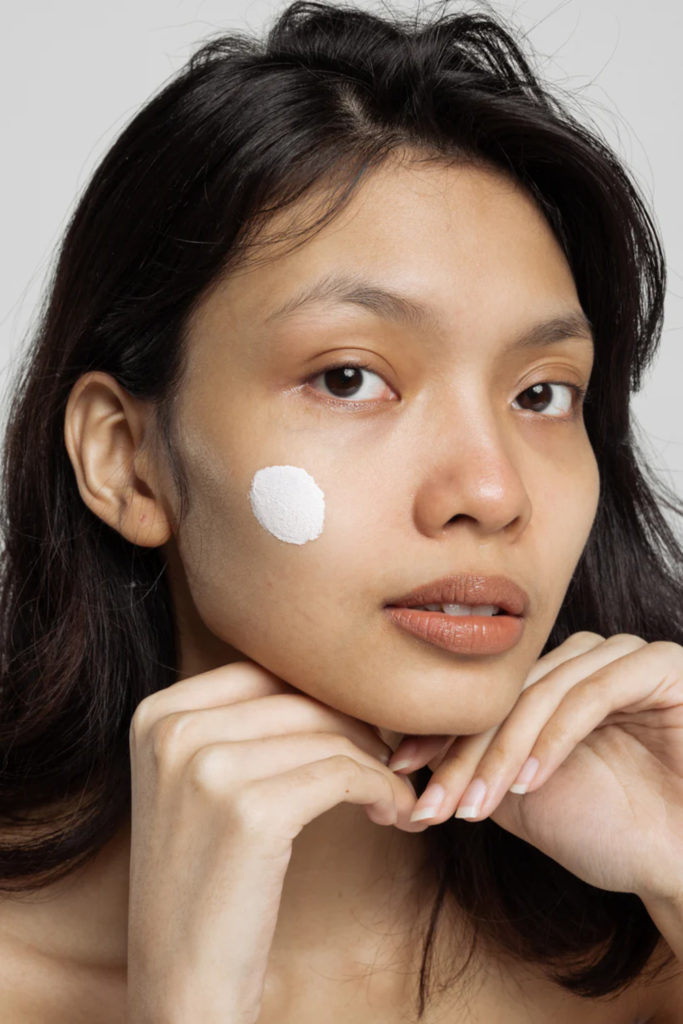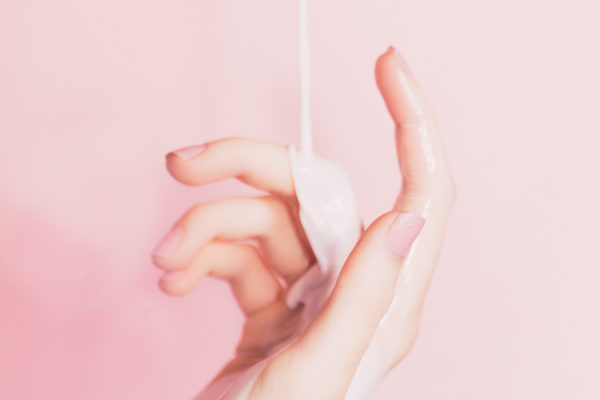Everything You Need To Know About Your Skin Barrier, As Told By Experts
By
2 years ago
A deep dive into this skincare buzzword

One term in the skincare space you will have noticed pop up again and again this year is ‘skin barrier’. Hailed as one of the biggest trends of 2023, it refers to the outermost layer of skin – the protective barrier that keeps us hydrated and safe from pollutants. But how much do you really know about yours? We ask a team of experts all of your questions about skin barrier care, damage and revival, so you don’t have to.
The Country & Town House Responsible Buyers’ Guide
A Guide To Understanding The Skin Barrier
What Is The Skin Barrier?
‘The skin barrier which is the outer layer of our skin, also known as the stratum corneum,’ says Abbi Ingram, a skin specialist at The Skin Studio. ‘Its like a very thin seal protection, and without this layer any water inside you body would escape – leaving you completely dehydrated.’
‘Our skin is made up of various different layers, each of which are designed for a specific important function to protect the body,’ adds Dr Nina Bal, a leading skin expert and advanced aesthetic practitioner. The very top, outermost layer, the stratum corneum, acts like a protective wall. This layer consists of tough skin cells that are bound together to create a barrier between the deeper layers of skin and the outside environment, preventing toxins and bacteria from entering the body.
‘While we of course have a skin barrier across our whole body, it is particularly important on our face as it stops harmful things entering the skin which can cause infection and it also prevents vital things from escaping including hydration and moisture which keeps your facial skin healthy and undamaged.’
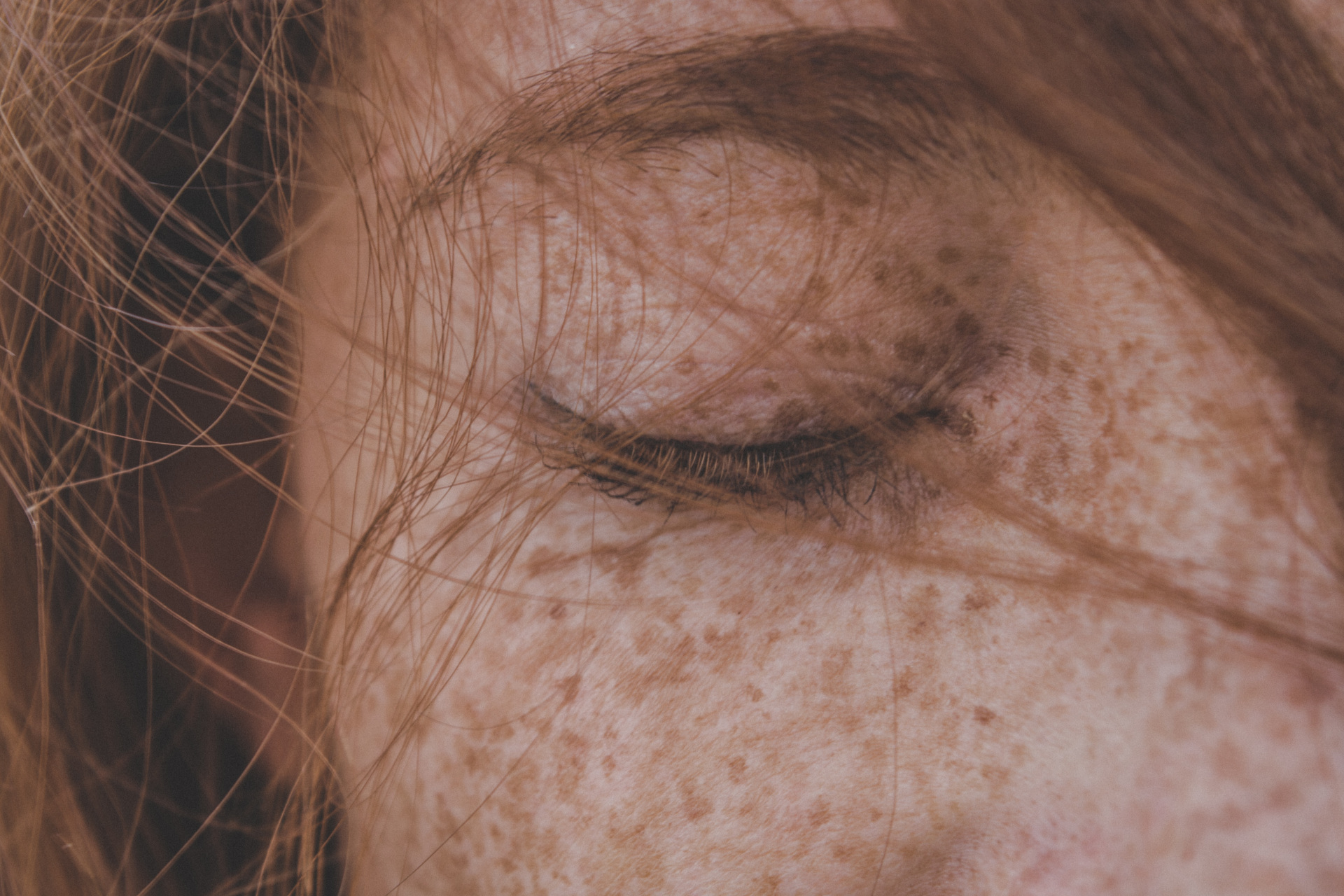
(c) Chermiti Mohamed, Unsplash
Tips For Building Up A Healthy Skin Barrier
Cleanse & Moisturise
‘There are a few things you can do to build a healthy skin barrier and protect it from damage,’ says Clare Hopkins, founder of Balance Me. Her main recommendation is following a structured skincare routine, with emphasis on cleansing and moisturising skin: ‘Firstly, cleansing is crucial. Make sure to keep your skin clean and gently exfoliated on a daily basis. Locking in moisture is a must too, using actives such as hyaluronic acid to keep your skin healthy and hydrated.’
Consider Your Diet
‘A balanced diet which is rich in many beneficial ingredients including omega-3 fatty acids, antioxidants, and vitamins can support skin health,’ advises Dr Bal. ‘On the other hand, excessive intake of alcohol, sugar, or processed foods can weaken the skin barrier. Remember that it’s not just about external products, it’s also about what you put inside your body.’
Aim To Drink Two Litres Of Water A Day
It’s important to stay hydrated too, says Dr Bal: ‘Your water intake is another important step that can help to build up your skin barrier. A damaged barrier can result in a loss of moisture from the skin, therefore maximum water intake will help to keep the skin hydrated while it repairs itself.’
Use Daily SPF
‘Sun exposure is one of the main causes of a damaged skin barrier due to harmful UV rays,’ warns Dr Bal. ‘Protecting your skin with a powerful SPF daily will help to prevent future barrier damage and can also stop harmful free radicals from creating further damage to the barrier. It is vital that you use a broad spectrum SPF daily all year round as they are designed to protect your skin from both UVA and UVB rays therefore offering maximum protection for your skin’s barrier. I also always recommend using a minimum of SPF30 for an efficient level of protection and the more often that you apply this daily, the better.’
Try One Of These Daily SPF Creams
What Destroys The Skin Barrier?
A lot can contribute to the destruction of our skin barrier, our experts tell us. These can be split into external and internal factors – think environmental aggressors like sun exposure (UV rays), pollutants in the air and harsh weather, as well as steroids and stronger medications. ‘Other threats include over-exfoliation of the skin, pH levels in your skincare products, surgeries and injections, psychological distress and genetic factors that make you more prone to certain skin conditions,’ says Dr Bal. ‘Your everyday indoor environment around you can also play a role in the health of your skin; factors like air conditioning and heating and humidity all contribute to your overall skin health.
‘The skin barrier is more of an acidic layer, so using products that have too much alkaline such as soap or detergents can cause that barrier to get damaged over time,’ adds Abbi.
But can you permanently damage you skin barrier? ‘In extreme cases, your skin barrier can become permanently damaged, but this is usually related to underlying skin conditions which are very rare,’ highlights Dr Bal. ‘Certain medications can provide improvement but permanent barrier damage often does not recover on its own, so be sure to consult an expert with any skin concerns.’

(c) Cottonbro Studio, Pexels
What Are The Signs Of A Damaged Skin Barrier?
‘Irritation and sensitivity are key signs that the skin barrier is damaged,’ says Clare. ‘Redness, breakouts, itchiness and dryness – these are all tell-tale signs that your skin is out of balance.’
Some other signs to look out for include:
- Dry, flaky skin
- Itchiness and irritation
- Acne and breakouts
- Pigmentation and discolouration
- Lines and wrinkles
- Delayed wound healing
- Increased skin sensitivity
Are Certain Skin Types More Prone To Damage?
Anyone can develop a damaged skin barrier, but our experts tell us that sensitive, dry and aging skin are often the most prone. ‘Unfortunately, those with more of a sensitive skin are more susceptible to damaging their skin barrier,’ says Abbi. ‘And as we know, our skin barrier will weaken as we age, making our skin more vulnerable to external factors.’
‘As moisture and water helps to keep the defence strong, people with extremely dry skin often naturally lack a sturdy skin barrier,’ adds Dr Bal. ‘Ageing skin is also more prone – over time, your body uses up the skin’s natural lipids which leaves behind less defence and a weaker barrier.’
Can The Seasons Impact Our Skin Barrier?
Any kind of weather can have an impact, our experts tell us. ‘Extreme weather such as a humid, hot climates and crisp, cold weather coupled with central heating can all play a part in weakening the skin barrier,’ says Clare. ‘In these cases, you will benefit from using products with ceramides, SPF and hyaluronic acid all throughout the year.’
‘Cold, dry air in winter can strip away the moisture from your skin while excessive humidity in summer might lead to increased oil production,’ adds Dr Bal. ‘Summer weather may cause the most damage to your barrier as UV rays from the sun are the most harmful external factor for your skin. Therefore it is extremely important to wear a powerful broad spectrum SPF daily all year round that will help to protect your skin through all weather types. Many people recognise their skin barrier damage as we move into autumn as the problems caused by summer weather start to become visible.’
Does Your Skin Barrier Heal Itself?
In most cases, your skin barrier can heal itself on its own. ‘If the damage to your skin barrier is mild, it can repair itself over time,’ confirms Dr Bal. ‘Depending on the damage, a skin barrier can usually heal itself within two to four weeks, but only if you take all the right precautions such as stopping all exfoliators and strong skincare products (like retinols and acids). In basic terms, if you continue the same routine that led to a damaged skin barrier initially, you’ll never see improvements.’
‘The skin is very clever at healing itself,’ adds Clare. ‘However, sometimes it needs a helping hand to address key issues such as acne, redness, sensitivity. It is about strengthening the mortar between the bricks, so the skin barrier is stronger and skin looks and feels healthier.’
Abbi tells us that more severe cases can take longer, taking anywhere between four weeks and six months to heal – and in these cases, you should see a professional or doctor. ‘If you’re worried about your skin barrier you should consult in a dermatologist or skin professional before diagnosing yourself,’ she emphasises. ‘It’s better to seek out advice to avoid in order causing any long-term problems.’
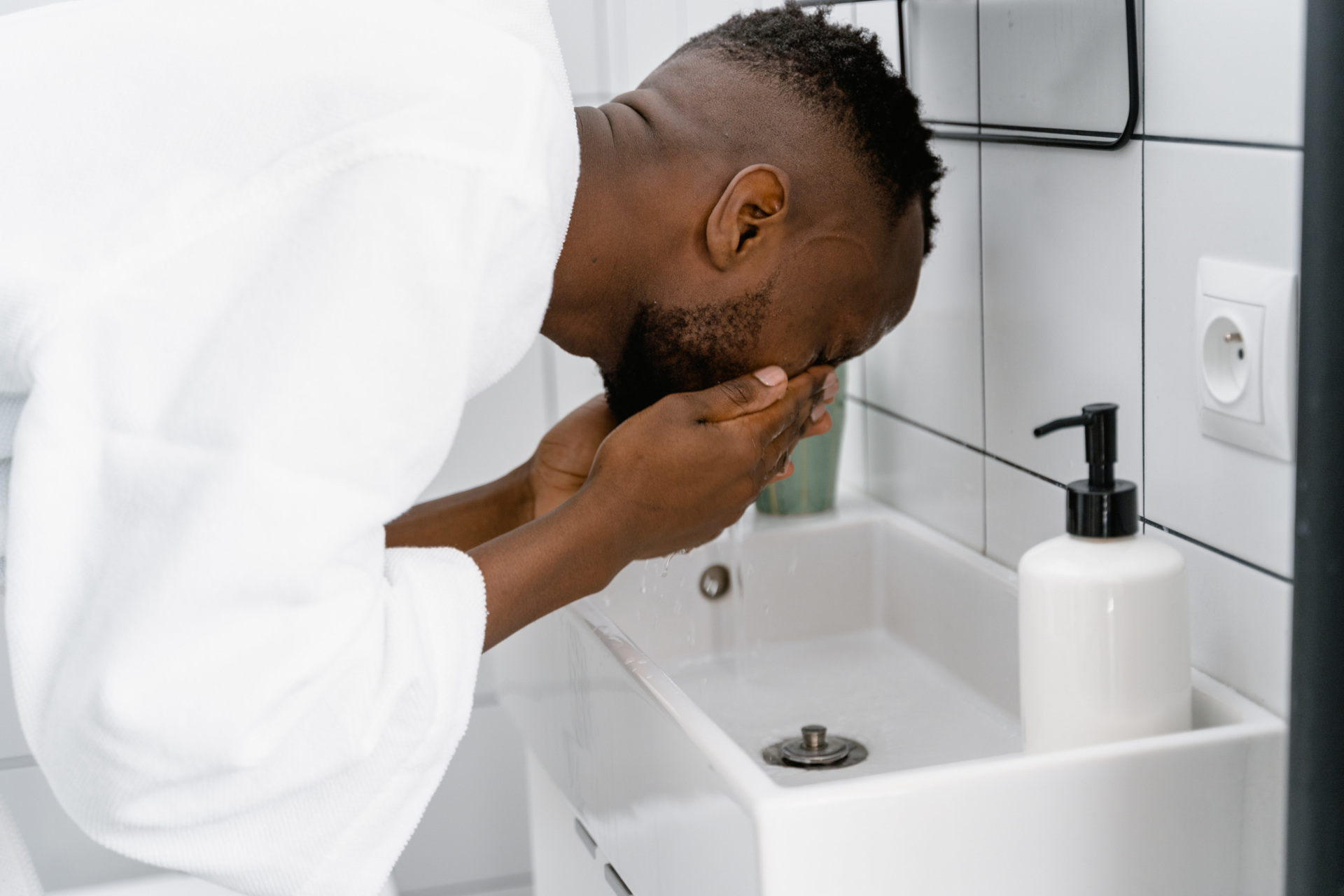
(c) Tima Miroshnichenko, Pexels
Should You Exfoliate If Your Skin Barrier Is Damaged?
It’s generally advised that you don’t exfoliate while experiencing skin barrier damage, ‘Exfoliation the skin can we a huge factor is damaging your skin barrier,’ says Abbi. ‘Especially if you’re over-exfoliating and taking too much of that protective layer off, leaving the skin exposed and sore.’
‘You should avoid exfoliation or any exfoliator products for two to four weeks once you notice the damage to your skin barrier,’ adds Dr Bal. ‘Exfoliation can be extremely harsh and rough on your skin, so adding this to an already-damaged surface can be detrimental in the long run. Steer clear of exfoliators while you are repairing your barrier and then once all symptoms and visible differences have recovered for at least one week you can start to add a gentle exfoliator back into your routine.’
Our experts recommend sticking to gentler products when you start using exfoliators again. ‘Start by using a gentle exfoliator only one or two times a week and slowly build it up,’ advises Clare.
Tips For Repairing A Damaged Skin Barrier
Assess Your Skincare Routine
Our experts agree that best thing you can do is assess your current skincare routine, and adjust it based on what you think might have damage. ‘Think about if you’ve been in a different environment or temperature recently or if you’ve been using different products on your skin. Many things can contribute to a skin barrier issue so it’s important to figure out the problem before trying to resolve it,’ advises Dr Bal. ‘Remember that some people can experience a damaged skin barrier because of genetics – if this applies to you, seek advice from a doctor or professional who can recommend specific products for you. If this doesn’t apply to you, strip your skincare routine down to the basics and use essentials only.’
Don’t Stop Your Skincare Routine
But that doesn’t mean you should stop your routine altogether, says Dr Bal. ‘Many people assume that they should stop their entire skincare routine when they’re experiencing barrier damage to give their skin a rest; however this could cause even more damage,’ she warns. ‘Stopping your skincare routine completely will confuse your skin which may result in breakouts, flare ups and even more dryness. Remove the powerful products that could potentially irritate your skin such as retinols and exfoliators and stick to the calm, gentle essentials for a while.’
Always Moisturise
‘Using moisturisers is very important with a damaged skin barrier, as the skin can become very dry very quickly,’ notes Abbi. ‘Using a moisturiser that has hyaluronic acid or glycerin will help leave a layer on the skin to prevent moisture loss.’
Dr Bal also recommends topping up on moisturiser: ‘Moisturise thoroughly, even if you’re someone who has oily skin as this is the most important step that should be completed regularly within your daily routine. You want to try and get as much moisture back into your skin as possible so complete this step morning and night with an extremely hydrating cream.’
Check The pH
‘The skin’s pH levels play a huge part in maintaining a healthy, working skin barrier as it ensures that your enzymes and proteins are functioning properly – which is vital for skin health and defence against pathogens,’ says Dr Bal. ‘You want to aim for a pH level of 5.5, which is average. This will ensure that your products are balanced and gentle on the skin without being too acidic or alkaline.’
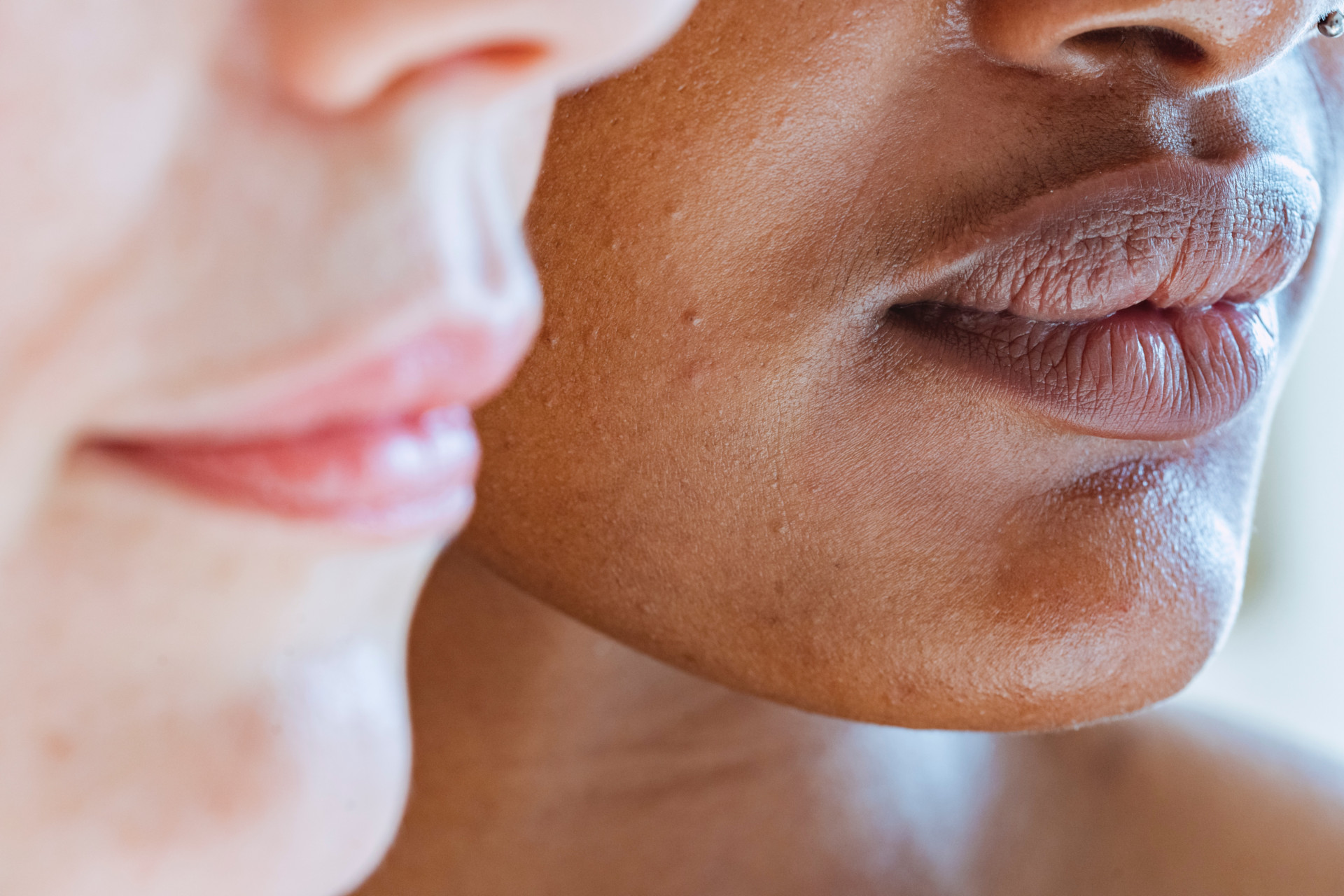
(c) Angela Roma, Pexels
Which Skincare Ingredients Can Help A Damaged Skin Barrier?
Humectants (Hyaluronic Acid)
The first type of ingredient to keep an eye out for is one that hydrate and prevent water loss. ‘Humectants are molecules that prevent the trans-epidermal loss of water that may occur when your skin barrier becomes broken,’ explains Dr Bal. ‘Examples of humectants include hyaluronic acid and glycerin, which can be found in many skincare products. They maintain skin hydration and are therefore vital for pulling moisture into the skin for barrier repair.’
Antioxidants (Vitamin E, B3, C)
You’ll also want to use more protective ingredients, like antioxidants. ‘Antioxidants are molecules that help your body to fight off harmful free radicals and damage from environmental factors such as pollution and UV exposure,’ says Dr Bal. ‘They are the hero products when it comes to barrier restoration as they also work to protect your skin and repair it when the damage has been done. Examples of antioxidants include Vitamin E, Vitamin B3 and Vitamin C, all of which can be found in a wide variety of skincare products.”
Ceramides
And finally, you can also employ ingredients that help repair the skin barrier. ‘Ceramides are the lipids (fats) that occur in the skin that make up over 50 percent of our skin’s layers – they are an essential part of our skin barrier,’ says Dr Bal. ‘As we age, we naturally lose our natural ceramides which can result in wrinkles, loss of skin elasticity and sagging. Therefore it is vital to use them within your skin barrier routine to ensure that you have enough lipids for repair.’
‘Think of ceramides as your skin barrier’s best friend,’ adds Clare. ‘They are becoming so popular now that there is a greater understanding of the incredible role they play in protecting the skin barrier. Ceramides are considered the building blocks of the skin, helping to strengthen, soothe and protect the skin barrier.’
How To Build A Restorative Skincare Routine
‘If you’re experiencing a damaged skin barrier, it is important to remove all harsh, harmful products from your routine for a while and to stick to the gentle essentials instead,’ says Dr Bal. Below, she outlines a recommended skincare routine for repairing soothing and repairing damage:
- Cleanse: ‘It is still extremely important to cleanse the skin as this will help to keep it clean therefore reducing the risk of bacteria and other harmful substances entering the skin while your barrier is damaged,’ she advises. ‘However, it’s important to choose the right cleanser to use during this period. I would recommend using a cream cleanser instead of a foam as this is more gentle and soft on your skin. Foams can sometimes strip the skin of its natural moisture which will only lead to more damage for the barrier.’
- Serum: ‘After cleansing, use a hydrating serum as serums contain concentrated amounts of active ingredients therefore it typically takes a shorter amount of time to see visible results.’
- Moisturise: ‘Moisturising is one of the key steps when restoring your skin barrier,’ Dr Bal emphasises. ‘Ensuring that your skin receives high levels of moisture will help to repair the barrier as quickly as possible. Use a hydrating, barrier-repair moisturiser both morning and night, even if you have oily skin.’
- Protect: ‘Sunscreen is vital in this routine as UV exposure can cause free radical damage on your skin,’ explains Dr Bal. ‘Sun exposure is one of the top causes of barrier damage, so never skip this product step. Always apply a broad spectrum SPF of 30 or above daily – the more often the better. Always apply your SPF as the last step in your skincare routine to ensure maximum defence and make sure to apply underneath your makeup too.’
The Best Barrier-Strengthening Products
Featured image: Jessica Felicio, Unsplash











